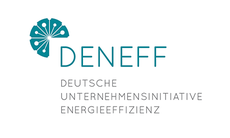Search eceee proceedings
Effects of the energy audit obligation for large companies in Germany
Panel: 1. Policies and programmes to drive transformation
This is a peer-reviewed paper.
Authors:
Michael Mai, IREES, Institute for Resource Efficiency and Energy Strategies, Germany
Edelgard Gruber, IREES, Germany
Abstract
In February 2015 the German Government enacted a law which targets non-SMEs in order to implement the EU Energy Efficiency Directive of 2012. According to the EU definition non-SMEs are companies or institutions with more than 250 employees or 50 million Euro turnover. They were obliged either to complete an energy audit by the end of 2015 or to introduce a certified energy management system by the end of 2016.
A very early evaluation of the measure was commissioned in autumn 2016. Its aim was to determine energy savings, reduction of emissions, investment and administrative expenses for the companies as well as effects on the German energy service market. An online survey has been carried out with 462 companies which have completed an energy audit and 403 which have introduced a certified energy or environmental management system. The quantitative impact of the law was extrapolated to Germany. The questionnaire covered the quantitative data mentioned but also aspects such as quality of the audits and reports, involvement of external or internal experts, management elements implemented, qualitative impacts and side effects.
Most of the companies surveyed would not have completed an energy audit without the law. About half of the companies, which had introduced a management system, did it before the Act came into force, in order to benefit from the exemption of eco taxes for energy-intensive enterprises. With regard to the audit performance not all quality criteria were met and the audit reports often covered only part of the elements specified in the EN 16247-1 standard. However most of the respondents were very or quite satisfied with the audits including the reports.
The extrapolation to the whole country resulted in energy savings between 14 PJ and 30 PJ by 2020 which amounts to 1 to 2 % of the final energy consumed by non-SMEs. Insofar the expectations of 50.5 PJ by the German Government were only partially fulfilled.
Downloads
Download this presentation as pdf: 1-121-18_Mai_pres.pdf
Download this paper as pdf: 1-121-18_Mai.pdf















